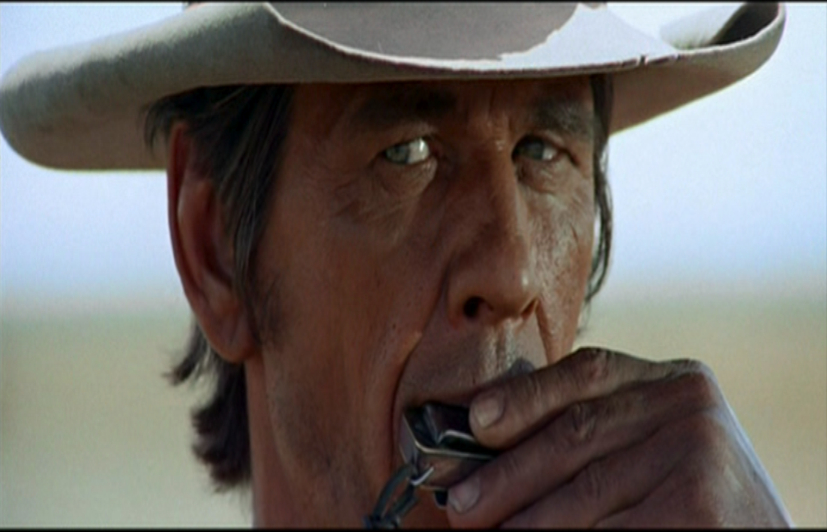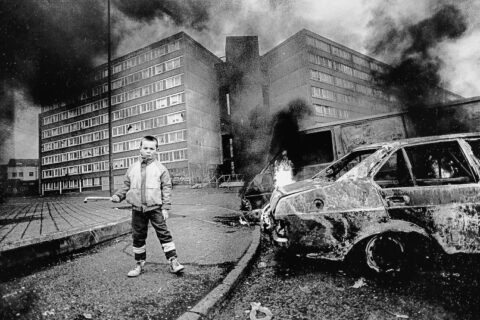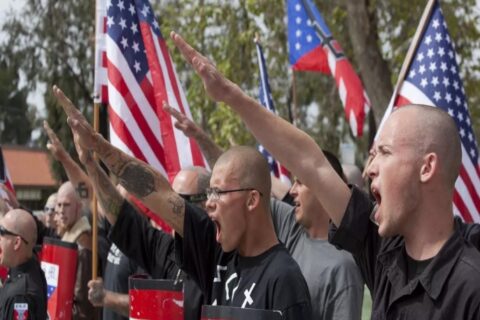I am an avid fan of the 1970s Southern Renaissance, a movement that touched music, film, and television. I grew up loving Lynyrd Skynyrd, and there was even a point in my life when I was listening to them every day and knew every Ronnie-era song by heart – leading me to dive really deep into Southern Rock, including lesser-known bands like Doc Holiday and The Paul Henry Band. Meanwhile, films like Smokey and the Bandit were a frequent video store rental, something that would eventually spur my interest in Good Ol’ Boy Hixploitation (i.e., Gator, A Small Town in Texas, and The Black Oak Conspiracy). As with many boys of my age group, The Dukes of Hazzard was a staple in syndication. All of them helped me develop a strong sense of Southern identity, which fueled my passion for them even more. Even going back years later, I still enjoy them quite a bit and think they’ve held up.
In some ways, I have come to appreciate the 1970s Southern Renaissance even more; as I have grown older, I now realize that it helped install a sense of pride in being a Southerner during an incredibly important point in history – right after the end of the Second Reconstruction. Though the cultural climate was nowhere near as bad as it is now, the mid-1960s to early 1970s was not a good time to be a Southerner in the media. Yes, it was the time period of The Andy Griffith Show, but it was also the era of In the Heat of the Night. It might have been the days when The Rolling Stones would be photographed with the Confederate Battle Flag and even non-Southern bands like The Doobie Brothers and Creedence Clearwater Revival would sing songs exalting Dixie, but it was also the era of Neil Young’s “Southern Man” and “Alabama.” There examples of the media painting a positive depiction of Dixie, but this tended to be drowned out by more negative representations. Remember, by 1970, The Andy Griffith Show was gone, replaced with the inferior Mayberry R.F.D., and even that show, along with several other rural/Southern themed shows, would be canceled the next year as CBS focused on urban-themed projects in an event known as “the rural purge.” It is conceivable to imagine an attack on Southern identity, similar to the one that was launched in 2015, beginning at some point in the 1970s. Young Southerners were repeatedly told that their land was one of poverty, racism, hookworm, and not much else.
What bands like Lynyrd Skynyrd, movies such as Smokey and the Bandit, and television shows like The Dukes of Hazzard did was give young Southerners something that made being Southern cool. Let’s take Ronnie Van Zant, for example. The man was not just a great singer and great lyricist, he was also brash and tough. Although not a bully, he was willing to fight to defend himself. He was fiercely proud to be a Southerner (“Sweet Home Alabama”) and refused to bow down to the New York record labels (“Working for MCA”). But he could also take the time to notice the beauty of nature (“All I Can Do is Write About It”), and even find humor in a near death situation (“Gimme Three Steps”). He was able to capture the way many were feeling in the 1970s; and because he was unapologetically Southern, young Dixians had someone to admire. The same can be said for The Bandit or the Duke Boys, they were able to present the anti-government spirit of Dixie at a time when many were longing for it. This is, after all, the era right after Vietnam and Watergate.
All three offer up something else that is highly important and travels across the Mason-Dixon Line. Not only were they Southern, but they were also masculine. To understand why that is important, it must be understood just what was happening in the wider culture at this time – the United States’ defeat in Vietnam was used by the Left as the casus belli to attack traditional masculinity. Before I begin this, let me say that I think Vietnam was a stupid war. Had I lived back then, I would have opposed it. I see no point in sending soldiers to the other side of the world to prevent the spread of communism when nothing is being done to stop the advancement of communism at home. To make matters worse, the war was fought incorrectly, and American boys were dying for nothing; they never had the chance to win. That being said, I would not have supported the anti-war movement, either. There is a misconception that the politics of the era were divided between the anti-war Left and the pro-war Right – but this is a gross oversimplification. Leaving aside the fact that the war was started by liberals, many on the Right opposed the Vietnam War for the reasons above. Additionally, they hated the anti-war movement because they correctly considered it a subversive element.
Still, as a consequence of the American failure in Vietnam, the Left used it as an excuse to attack masculine virtues, arguing that these attributes had led to the disaster in Vietnam. Toy soldiers and playing “Army” has been a staple for young boys for thousands of years, but this was actively discouraged in the 1970s. We can observe this in film, as Robert Redford replaced John Wayne as one of the biggest stars on the planet. The subtext to this shift is that a masculine brute, like Wayne, gets you into Vietnam; however, someone like Redford has the wisdom to stay out of the conflict. It certainly is interesting to note how few action stars really arose in the 1970s. It is not the case that there were not great action movies or action stars in that era, but many of them climbed to prominence in the pre-1970s era, like Clint Eastwood or Charles Bronson, or did not really become “action stars” until the 1980s (see Sylvester Stallone). This trend must be observed in the context of the post-Vietnam period’s assault on masculinity. This is the time period of Elton John, Disco, David Bowie, and Queen. But the Southern Renaissance was different, it celebrated traditional masculine values and boldly argued they had a place in society, even after the defeat in Vietnam.
What the 1970s Southern Renaissance did was offer young men an alternative, one that allowed them to be explicitly masculine when that was considered a relic of an older and obsolete society and a mentality that had caused Vietnam. I am not arguing that Southerners had a monopoly on 1970s masculinity; for example, Michigan had the Motor City Madman, Ted Nugent. However, if you were a masculine young man fed up with the attacks on masculinity in this period, many of the musicians, movies, and television shows that rejected this affront featured Southern men, and that gave even non-Southern men a reason to admire Dixie. In the 1990s, the Third Reconstruction did incredible damage to the South, more than is commonly realized, but it was more muted than the other Reconstructions because the era was dominated culturally by people who had grown up in the 1970s and they had fond memories of Lynyrd Skynyrd, the Bandit, and the Duke Boys. Far from seeing the Confederate Flag as a symbol exclusively used by cartoonish bigots, they instead viewed it a symbol of their childhood heroes.
The Left understands this, too. There is a reason they are pushing Lynyrd Skynyrd to become, at best, a regional band played on Classic Rock stations. AMC already censors the Bandit’s car, and The Dukes of Hazzard becomes harder to find with each passing year. The Left comprehends that the 1970s Southern Renaissance gave young Southerners a reason to be proud of their country, and it had ramifications into the 1990s and even beyond. That is why they are trying to suppress it, and why we need to create a Second Southern Renaissance – one for the 2020s to make young Southerners proud of their nation again. Much like the 1970s, the Left’s attacks on masculinity gives us an opening, and one we must exploit. A nation cannot survive when its young reject it. The 1970s unexpectedly gave Dixie a new lease on life and serves as a model for what must be done in the future.







Agree 100%. We need a NO PC film guide and a bunch of southern wanna be writers / producers to just … go for it. Huge and great things start with baby steps.
Even something like a cartoon show (where nobody had to get doxxed) could work wonders.
We definitely need a Southern Renaissance, and we need to honor godly masculinity — men who follow Jesus. Feminism has emasculated men leaving many of them feeling guilty for being men. The stars and bars for me represent Southern culture; it was on my state flag most of my life. God bless Dixie!!
My near-neighbors have a cherried-out “General Lee” that the husband and his wife built from the ground-up. I’ve looked it over, inside and out and top to bottom; that they were able to get it right in so many fine details is … amazing.
My own father, by all accounts, was a veritable Andy Griffith. Remember, though, that Andy Griffith was not necessarily pro-Southern, as much as he was pro-American, as was my father. Consider, e.g., the episode in which he (Andy) and Barney and others discuss, for the sake of the school children, Abraham Lincoln and the “goodness” of the Emancipation Proclamation.
I’m often criticized for my lack of enthusiasm and love for “The Waltons.” Keep in mind, though, that John Boy was a leftist in the making, and that the Walton family were big supporters of Roosevelt and the “New Deal.” There are a number of “The Waltons” episodes that are openly hostile to our principles; that people today cannot see them for what they were is very discouraging, to say the least. …
C’mon, man. Its the HENRY PAUL band. Even a lifelong Yankee like me knows that. Jeez.